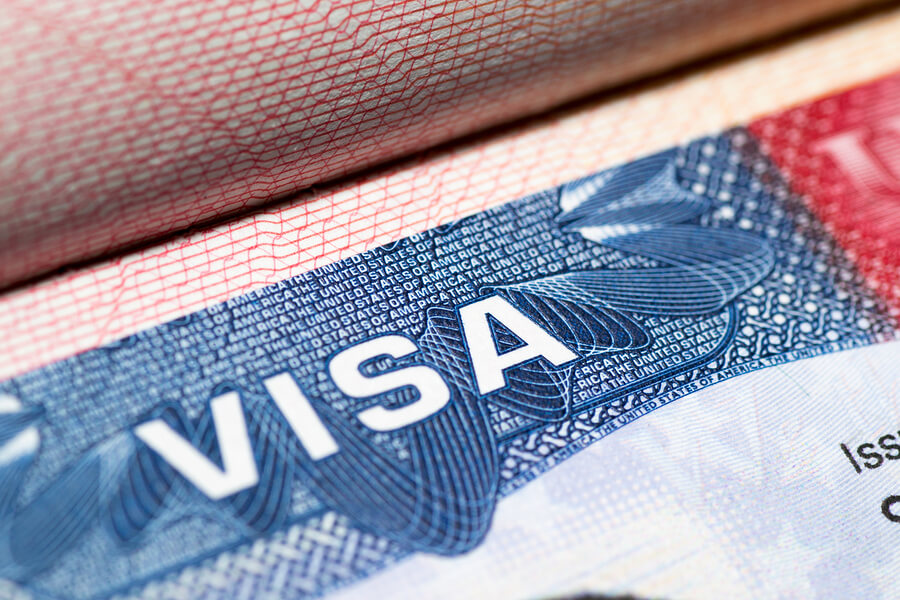
Can a Felon Get a Passport?
Short Answer: Can a felon get a passport? Yes, in most cases a felon can get a passport without problems but obtaining a visa to visit other countries may be an issue for some felons. In short a passport is just another form of Identification while a visa allows you to enter foreign countries. Below you will all the information necessary to travel abroad as a felon.
If someone is convicted of a felony, they automatically lose many of the rights granted to seemingly everyone else around them. Sometimes this lose of rights can negatively impact the felon’s entire life for their foreseeable future, including their ability to obtain certain forms of employment, jobs or to visit other countries.
This loss of rights is not always compulsory; it is often by the discretion of various authorities. And the felon’s rights may be lost only temporarily, or indefinitely. Everything depends on the nature of the conviction. In certain instances the convicted felon’s rights are forfeit permanently.
Which rights are lost specifically—and for how long—depends on various factors, and naturally this is a cause of much confusion and frustration for convicted felons attempting to determine what they can or cannot do. One particular question which often comes up is, “can a felon get a passport?” And if so, how?
A Passport Is Not A License To Travel
The standard passport is issued in a laminated booklet form, with different cover colors denoting their type and/or country of origination. The passport booklet is the first thing that a traveler shows at the airport upon checking into an international flight. It will also be checked again before boarding the actual aircraft. Finally, it will of course be checked upon entry into the destination country, by their local agents behind their little glass windows.
What is a passport? Not what you think!
First let’s consider what a passport actually is, because there are sometimes misunderstandings. For instance, in many cases it takes more than merely a passport to travel to another country. Therefore simply asking “can a convicted felon get a passport” may not answer the underlying question of “can a convicted felon travel overseas?” Thinking about taking a cruise?

Broadly speaking, the passport itself is only a type of global identification, not much different than a driving license or library card…except it can be used anywhere, and not just in the issuing country. So, to be specific, a passport is a type of ID which an average person can use overseas, versus, say, that library card! Passports are documents which are internationally recognized by government agencies around the world, as a mutually-agreed upon format. Because of the basic nature of the passport, the short answer is yes, in general a felon can obtain a passport without any problem. But let’s dig in a bit more…
However, by itself, a passport is NOT a license to travel abroad! The destination country agent is possibly going to be checking also for a visa stamp or proof of an electronic visa, depending on the agreement between the United States and that destination country. But we’ll get into that more in a moment…
As a form of identification, a passport contains personal information such as name, sex, date of birth, and place of birth. Every passport also has a unique number assigned, an expiration date, and a biometric chip (or “RFID,” radio frequency identification) containing the same information stored within its memory.
Most tourists or expatriates (people who live outside their home country) apply for what is called an “Ordinary passport,” which is a navy blue-colored booklet that is given to regular citizens for overseas travel (as opposed to a black “Diplomatic” passport, or a brown or red “Official” passport given for governmental or military personnel. Thus, under most circumstances, a convicted felon is likely to be applying for an ordinary blue passport.
Types of Passports
We reviewed the basic passport types; now let’s look at the visa types. They include:
- The standard “Tourist visa,” for general tourism and travels;
- The “Business visa,” for business and commercial activities;
- The “Transit visa,” for passing through a certain country quickly, en route to another country;
- The “Temporary worker visa,” which is self-explanatory;
- And the “Student visa” for those studying abroad, for example taking a semester as a foreign exchange student.
Source: DifferenceBetween.Net
U.S. passport holders are generally able to visit any of 160 countries without the need for a separate visa. You can find the precise list of countries and requirements here.
So to recap: in order to travel abroad, the traveler needs both a valid passport and a valid visa, unless the destination is one of the countries which waive the visa requirement for U.S. citizens. But not so fast! There are still a few caveats to consider about those visas, as you will see below…
Now that the definitions are out of the way, let’s get back to the question at hand.
Can a Convicted Felon Get A Passport?
In general, yes, they should be able to.
Convicted felons who want to get a passport need to understand the restrictions placed on them. Most can already tell you that they’ve had their voting rights taken, and probably their right to possess a firearm. In general, other rights impacted include: jury service (which most persons don’t want to do anyhow), certain types of employment, certain public social benefits and housing, and also some parental benefits. Traveling abroad may also be affected, as we are learning here…
But all hope is not lost. In some states a felon can still obtain a passport (and visa) if their crime was not related to international drug trafficking. International drug trafficking makes a felon ineligible for consideration to obtain foreign travel documents.
That said, a passport application form doesn’t actually ask about criminal history! It is only through a background check that such pertinent information is revealed to the issuing agent. Convicted criminals and felons would only be denied a passport if their sentencing, probation, or parole specifically prohibit it.
Committing A Felony While Using A Passport
If the felon crossed international borders or somehow used their prior passport in the engagement of their criminal offense, then the convicted felon will be banned from obtaining another passport during the length of their prison term and/or probation/parole. But the good news for felons is, after these probationary/parole periods are served, the restriction should be lifted, enabling them to seek their passport. Specific questions should be directed to the felon’s probation officer or a qualified attorney who specializes in the field.
Conviction Of A Treasonable Offense
Another instance in which a felon would not be eligible to obtain a passport is, if the felon was convicted of a treasonable offense.
The U.S. Constitution breaks treason into two main categories: “the levying of war against the United States,” and “adhering to their enemies, giving them aid and comfort.” The average convicted felon is not going to be walking around with a treason charge, however, and thus we will not delve further into it here. But for those interested in learning more about treason charges you can find more information here.
Suffice it to say, the U.S. Constitution itself is the source which denies any passport applicant convicted of “taking arms against the United States government, or plotting its overthrow” from getting to travel abroad. So if a felon is, for whatever reason, is convicted of treason, they should not make any plans to leave the country. They can by all means apply, but the result is fairly certain.
State Laws
A big issue which affects a convicted felon’s ability to get a passport is where they were convicted. Again, certain states may take the felon’s right to vote and this could impact the ability to get a passport, but in general it is more about the conviction and the current status of the felon (i.e. their probation/parole status).
Getting back to the status of the convicted felon, as mentioned above, if they are on probation or parole, it is highly unlikely they’ll be given permission to depart the country. It doesn’t mean that they cannot apply, but it makes sense to wait.
That said, in some cases, approval can be obtained. Every circumstance is different, and this article cannot cover every contingency, so it is always best to direct questions to the felon’s probation officer or, as stated above, a qualified attorney.
Other disqualifying factors for convicted felon passport applicants, aside from those disqualifying factors already mentioned above, include:
- outstanding federal arrest warrants (which should go without saying).
- any outstanding prison debts.
- any specific court order which denies them the right to leave the country for any reason.
- outstanding child support debt over $2,500.
- unpaid loans for repatriation assistance.
Source: USA Today
Additional considerations which might preclude a convicted felon of getting their passport include:
• If the felon is pending trial and the State Department believes the felon might be a “flight risk”
• If the State Department feels the felon may present a risk to themself or to others abroad
Child Support
In terms of child support, actually it does not matter if the applicant is a convicted felon or not; if one owes over $2,500 in back payments, the passport application won’t go through. The same goes for outstanding arrest warrants, not including civil infractions.
Final Notes
If a convicted felon already has a passport, that document can still be revoked! So one should not make any assumptions or attempt to travel overseas if they are disqualified due to any of the above reasons. It should go without saying that altering a passport or attempting to use fraudulent information to obtain a passport can lead to further criminal charges filed against the felon.
Securing the visa for the destination country should always come first, in case the intended destination country’s agents decide to run a background check as a part of the screening process for entry and determine that the felon is ineligible based on their specific country regulations. In other words, one country may allow travel to a specific felon, while another country may prohibit that same felon! Canada, as an example, doesn’t allow anyone convicted of a drunk driving.
When in doubt, as always—the felon should seek professional advice from their agent or an attorney!
